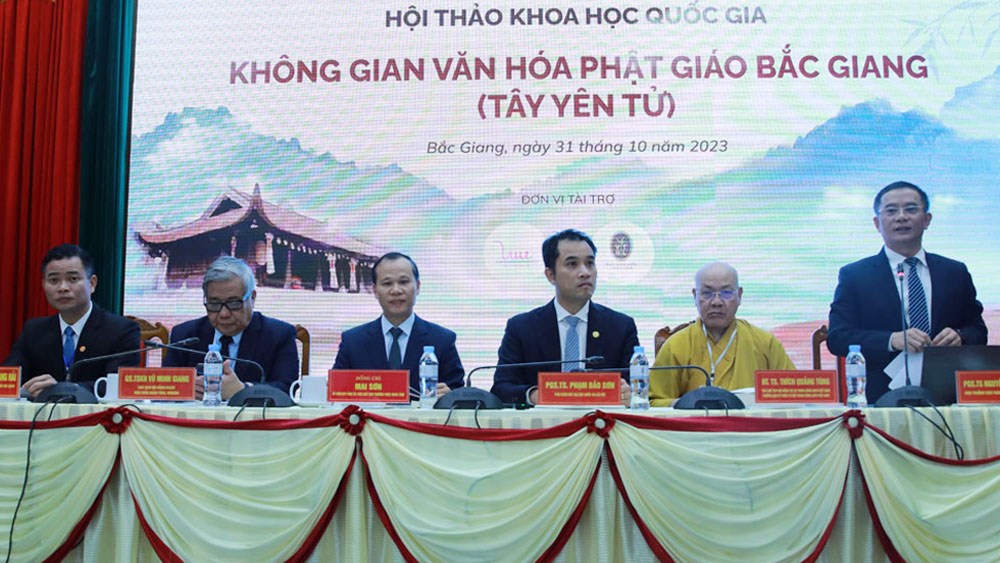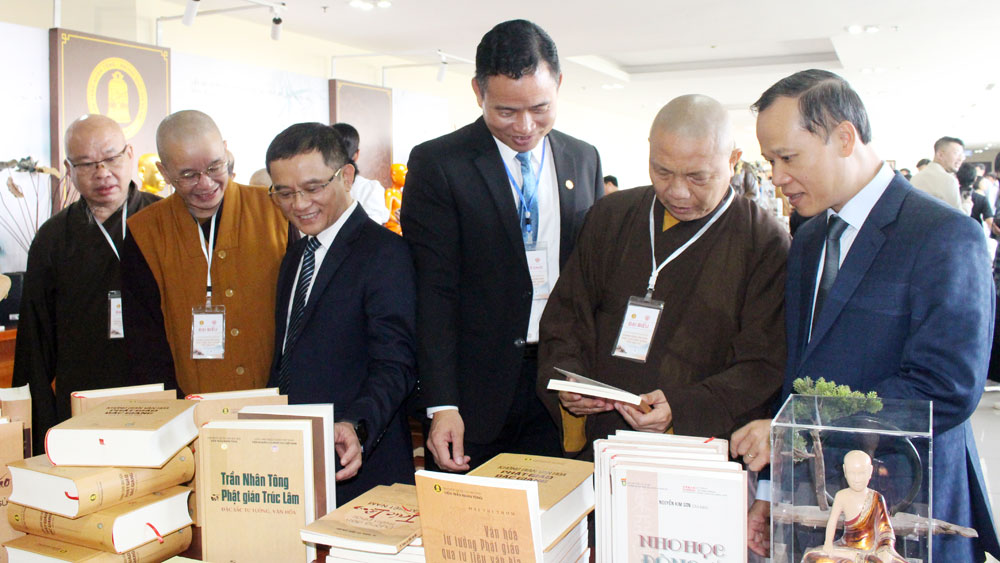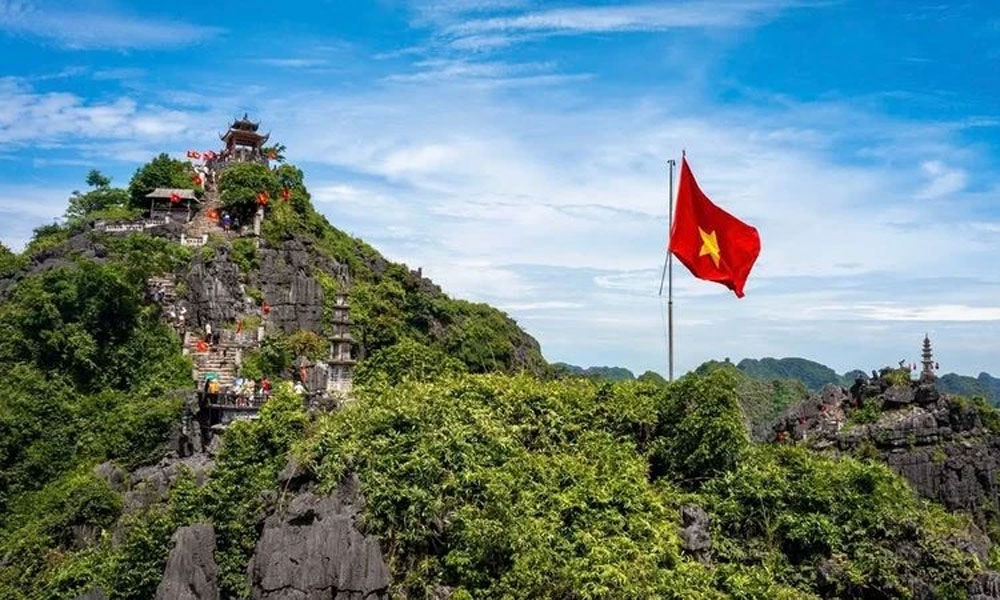Bac Giang Buddhist cultural space conference clarifies values and plans for development
Addressing at the event, Associate Professor Dr. Nguyen Tien Vinh, Director of Tran Nhan Tong Institute briefed that Bac Giang is a land in the upper region of Kinh Bac town with thousands of years of civilization. It is one of the localities with many vestiges and relics together with the most vivid presence of traditional and contemporary Vietnamese Buddhism.
 |
|
The delegation chairs the conference. |
Currently, there are about 940 Buddhist temples and monasteries in Bac Giang province, mainly belonging to two sects of Lam Te Buddhism and Truc Lam Buddhism.
The conference aimed to gather systematic and comprehensive assessments, including new scientific discoveries about Buddhism in Bac Giang (Tay Yen Tu). The event was expected to clarify and spread the heritage and contemporary values of Bac Giang Buddhism, identify and offer solutions to the potential, opportunities and challenges so that these values can be preserved, promoted to be a resource for humane, harmonious and sustainable development of the locality.
The conference received a total of 110 presentations with the participation of 128 scholars from many agencies and organizations in all 3 regions of the country. The organizing committee selected 74 most outstanding presentations to publish the full text in the yearbook.
 |
|
The Permanent Vice Chairman of the provincial People’s Committee Mai Son and delegates visit the woodblock printing experience area at the conference. |
More than 20 delegates delivered speech at the event. Experts and scientists focused on discussing three main content groups including: Bac Giang Buddhist cultural space in the historical flow of Vietnamese Buddhism, Bac Giang Buddhist cultural heritage, preservation and development of the value of Buddhist cultural space in Bac Giang (West Yen Tu).
Delegates mentioned and analyzed the introduction, development, influence and spread of Buddhism in Bac Giang on Buddhism throughout the country; identified, evaluated and clarified the role of Buddhism in contemporary human life issues in the locality, hence proposing solutions to effectively preserve and promote the value of Buddhist heritage for cultural, economic and social development, including sustainable tourism development.
 Bắc giang
Bắc giang















Reader's comments (0)